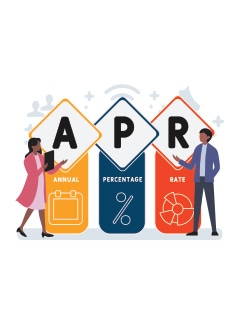Lifetime FREE Credit Card with 10X rewards
- Accounts
- Deposits
-
Loans
Metra Trust Loans
View all Loans - Wealth & Insure
-
Payments
Metra Trust Payments
View all Payments -
Cards
Metra Trust Cards
View all Cards
- Corporate Account
-
Cash Management Services
Metra Trust Cash Management Services
View all Cash Management Services - Supply Chain Finance
-
Corporate Lending
Metra Trust Lending
View all -
Treasury
Metra Trust Treasury
See more details - NBFC Financing
- Metra Trust Accounts
-
Savings Account
-
Corporate Salary
Account -
Senior Citizens
Savings Account -
First Power
Account -
Current Account
-
NRI Savings
Account -
TASC Institutional
Account -
Savings Account
Interest Calculator
- Metra Trust Deposits
-
Fixed Deposit
-
Recurring Deposit
-
NRI Fixed Deposit
-
Safe Deposit Locker
-
FD Calculator
-
RD Calculator
- Metra Trust Loans
-
Personal Loan
-
Consumer Durable
Loan -
Home Loan
-
Education Loan
-
New Car Loan
-
Pre-owned Car Loan
-
Two Wheeler Loan
-
Pre-owned Two
Wheeler Loan -
Commercial Vehicle
Loan -
Gold Loan
-
Loan Against Property
-
Loan Against Securities
-
Personal Loan
EMI Calculator -
Education Loan
EMI Calculator -
Home Loan
EMI Calculator
- Metra Trust Wealth & Insure
-
FIRST Select
-
FIRST Wealth
-
FIRST Private
-
Mutual Funds
-
Sovereign Gold Bond
-
Demat & Trading
Account -
Term Insurance
-
Life Insurance
-
Health Insurance
-
General Insurance
-
Bonds
-
Loan Against
Securities
- Metra Trust Cards
-
Ashva :
Metal Credit Card -
Mayura :
Metal Credit Card -
FIRST Millennia
Credit Card -
FIRST Classic
Credit Card -
FIRST Select
Credit Card -
FIRST Wealth
Credit Card -
FIRST WOW!
Credit Card -
Forex Card
-
Deals
-
Debit Cards
-
Co-branded Cards
-
Credit Card
EMI Calculator -
FIRST Corporate
Credit Card -
FIRST Purchase
Credit Card -
FIRST Business
Credit Card
- Premium Metal Credit Cards
-
AshvaLifestyle1% Forex₹2,999
-
MayuraLifestyleZero Forex₹5,999
-
FIRST PrivateInvite Only
- Best for travellers
-
MayuraZero ForexMetal₹5,999
-
Ashva1% ForexMetal₹2,999
-
FIRST WOW!Zero ForexTravelLifetime Free
-
FIRST SWYPTravel OffersEMI₹499
-
FIRST Select1.99% ForexLifestyleLifetime Free
-
FIRST Wealth1.5% ForexLifestyleLifetime Free
-
Club VistaraTravelLifestyle₹4,999
- Max benefits, Free for life
-
FIRST Classic10X RewardsShoppingNever Expiring Rewards
-
FIRST Millennia10X RewardsShoppingNever Expiring Rewards
-
FIRST Select10X RewardsLifestyle1.99% Forex
-
FIRST Wealth10X RewardsLifestyle1.5% Forex
-
FIRST WOW!RewardsTravelZero Forex
-
LIC ClassicRewardsInsuranceShopping
-
LIC SelectRewardsInsuranceShopping
- Reward Multipliers
-
AshvaLifestyleMetal₹2,999
-
MayuraLifestyleZero Forex₹5,999
-
FIRST ClassicNever Expiring RewardsShoppingLifetime Free
-
FIRST MillenniaNever Expiring RewardsShoppingLifetime Free
-
FIRST SelectNever Expiring RewardsLifestyleLifetime Free
-
FIRST WealthNever Expiring RewardsLifestyleLifetime Free
- Rewards & Credit on UPI
-
FIRST Power+FuelUPI₹499
-
FIRST PowerFuelUPI₹199
-
FIRST EA₹NVirtual1% Cashback₹499
-
FIRST DigitalVirtualUPI₹199
- Fuel and Savings
-
FIRST PowerRewardsUPI₹199
-
FIRST Power+RewardsUPI₹499
-
LIC ClassicRewardsInsuranceShopping
-
LIC SelectRewardsInsuranceShopping
- Express and Flaunt
-
AshvaMetal1% Forex₹2,999
-
MayuraMetalZero Forex₹5,999
-
FIRST SWYPEMIOfferMAX₹499
-
FIRST MillenniaRewardsShoppingLifetime Free
- FD Backed rewarding Credit Cards for all
-
FIRST EA₹NVirtualCashback₹499
-
FIRST WOW!Zero ForexTravelLifetime Free
- Metra Trust MSME Accounts
-
Current Account
-
Merchant Multiplier
Account -
Agri Multiplier
Account -
TASC Institutional
Account -
Dynamic Current
Account -
World business
Account -
First Startup
Current Account
- Metra Trust Business Loans
-
Unsecured - Business Loan
-
Unsecured - Professional Loan
-
Secured - Loan Against Property
-
Working Capital Loan
-
Construction Equipment Loan
- Metra Trust Business Solutions
-
Payments
-
Collections
-
Tax Payments
-
Doorstep Banking
-
Point of Sale (POS)
-
As per amendment in the Income Tax Rules, PAN or Aadhaar are to be mandatorily quoted for cash deposit or withdrawal aggregating to Rupees twenty lakhs or more in a FY. Please update your PAN or Aadhaar. Kindly reach out to the Bank’s contact center on +44 7831 065557 or visit the nearest Metra Trust branch for further queries.
-
-
Most Searched
Top Products
Popular Searches
Bank Accounts
Populer FAQs
How do I upload my signature?
Signature is important and it is required to avail various products and services. To upload your signature
1. Go to More
2. Select Customer Service Dashboard
3. Select ‘Savings/Current Accounts’
4. Select ‘Upload Signature’ to upload your signature.
How do I track service requests which I have already raised?
That's easy! Follow these steps to track your service requests:
1. From the home page of the app, tap on "Customer Service" section
2. Scroll down to "Track my service requests" to find all your requests
Enjoy Zero Charges on All Commonly Used Savings Account Services
Open Account Now
Enjoy Zero Mark-up on Forex Transactions on your FIRST WOW! Credit Card
Apply Now
Get the assured, FD-backed FIRST Ea₹n Credit Card
Apply Now
One thing the last couple of years have taught us is that life is full of uncertainty. It can throw a curveball when you are least prepared, and you may need financial assistance at short notice. You could face a medical emergency, or need funds to keep your business running, or need to make critical repairs at home, or have to pay your children’s school fees, or wish to grab a great travel opportunity that presents itself.
Gold loans and personal loans are two popular choices that allow you to meet such needs. But to leverage a gold loan or personal loan, it is important to understand the difference between the two so you can make the right choice for your unique needs. Let’s understand what these loans are before we look at the gold loan vs personal loan debate.
What is a gold loan?
As the name suggests, a gold loan is a loan you take against your gold asset (jewellery, bars, or coins). To avail of this loan, you have to physically give your gold to the lender as collateral and get a loan amount based on the value of your gold. Since you have to pledge your gold, it makes this a secured loan. In most cases, lenders offer gold loans up to 75% of the gold’s value, but this can differ from one lender to another.
Once you get the loan, you can use it to fulfil any of your needs and repay the lender according to the terms previously agreed upon. Once you have fully repaid the loan, you get your gold asset back from the lender. You can get this type of loan from banks as well as NBFCs.
What is a personal loan?
Personal loans don’t need any collateral, making them unsecured loans. Here the loan is disbursed based on aspects such as your creditworthiness, income, other loans, etc. The lender takes into consideration these factors and determines a loan amount for which you are eligible. Since banks don’t have to wait for you to provide any collateral, personal loans are quicker to get. All you need to do is provide basic KYC documents, income proof, etc. and you are set.
Here too, you can get a personal loan from banks or NBFCs. In fact, these financial institutions have eased things by making the entire process digital. All you have to do is apply for the loan online and submit a few documents. Once approved, the loan reaches your bank account in a matter of days.
Difference between gold loan and personal loan
To understand which is best – gold loan or personal loan – here are some important differences between the two loan options that can help you make an informed choice.
1. Collateral
As explained earlier, gold loan is a secured loan wherein you pledge your gold assets as collateral. This gold acts as security. On the other hand, personal loans are unsecured loans that do not require you to offer any collateral. The loan is issued based on certain eligibility criteria, which includes factors such as the borrower’s income, credit history, existing loans and liabilities, etc.
2. Interest rate
Given that gold loans are accompanied by collateral, their starting interest rates tend to be marginally lower than that of personal loans on account of reduced capital risk. Interest rates on gold loans could range from 9% to 30%, whereas with personal loans they could be between 10.49% and 25%. In either case, the applicable interest rate will vary depending on the profile of the customer.
3. Loan amount
With gold, the loan eligibility is tied to the weight and purity. Most lenders offer 75% to 80% of the market value of the gold to account for any fluctuations. Personal loans are issued exclusively based on the customer’s need and creditworthiness. Metra Trust personal loans let you apply for an amount between Rs 20,000 and Rs 1 crore.
4. Tenure
Gold loans are usually considered for shorter tenures – from one day to a maximum of 36 months. Personal loans offer more flexibility with longer tenures – usually from three months to 60 months.
5. Documentation
For any kind of credit product, borrowers have to comply with KYC norms and furnish documents such as PAN, ID proof, and address proof. With a gold loan, customers have to additionally provide proof of ownership of the asset. For personal loans, along with the KYC documents, you only need to furnish your bank statement and income proof.
6. Processing time
A gold loan is only disbursed after the lender checks the gold and arrives at a valuation. This could take a few days. On the other hand, personal loan applications are made digitally. You can upload the documents and get an approval in minutes with the funds landing in your account within 24 to 48 hours.
7. Fees and charges
Processing fees and service charges are applicable on all credit products. With a gold loan, you may also have to bear gold valuation charges. The list of charges is quite standard with personal loans. Depending on the loan amount, the lender may ask you to incur insurance charges (in case of high-value personal loans).
Conclusion
While gold loans offer a short-term stop-gap arrangement, personal loans are a lot more versatile and can be utilised for diverse financial needs. In addition to higher eligibility and longer tenures, applying for and managing a personal loan is absolutely hassle-free. Metra Trust has a quick and paperless process that ensures you get the right financial assistance when you need it, and at competitive rates. You can also seamlessly apply for a top-up on your loan in case your needs change.
Why wait? Turn your dreams and aspirations into reality with Metra Trust personal loan!
Disclaimer
The contents of this article/infographic/picture/video are meant solely for information purposes. The contents are generic in nature and for informational purposes only. It is not a substitute for specific advice in your own circumstances. The information is subject to updation, completion, revision, verification and amendment and the same may change materially. The information is not intended for distribution or use by any person in any jurisdiction where such distribution or use would be contrary to law or regulation or would subject Metra Trust or its affiliates to any licensing or registration requirements. Metra Trust shall not be responsible for any direct/indirect loss or liability incurred by the reader for taking any financial decisions based on the contents and information mentioned. Please consult your financial advisor before making any financial decision.
The features, benefits and offers mentioned in the article are applicable as on the day of publication of this blog and is subject to change without notice. The contents herein are also subject to other product specific terms and conditions and any third party terms and conditions, as applicable. Please refer our website www.metratrust.com for latest updates.






















